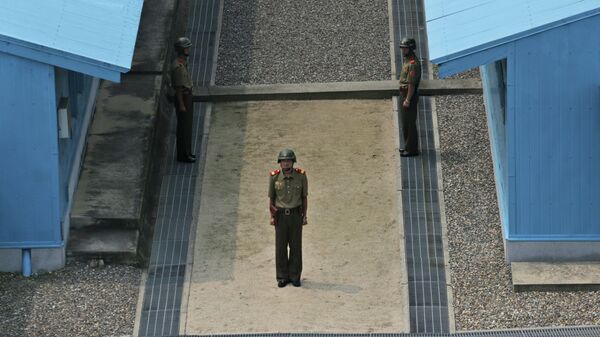In a statement, the ministry said work had begun on laser technology that will use a wireless power transfer system that can knock down small drones, due to increased operational capacity.
An unnamed official claimed that interception capabilities should be developed by 2018, while the entire system will likely not be ready until at least 2021. This move comes amidst Seoul’s claims of finding several unmanned aerial vehicles (UAVs) launched by North Korea in the last few years, south of the Demilitarized Zone that splits the the peninsula.
Small drones are worrisome for South Korea as their size makes them more difficult to intercept or track via radar.
On New Year’s Day, North Korean leader Kim Jong Un announced that the communist country would soon test launch an intercontinental ballistic missile with enough range to possibly reach the US mainland.
During a televised speech he said, "Research and development of cutting edge arms equipment is actively progressing and ICBM rocket test launch preparation is in its last stage."
US President-elect Donald Trump responded to Kim’s remarks on Twitter, writing, "North Korea just stated that it is in the final stages of developing a nuclear weapon capable of reaching parts of the US. It won't happen!"
Following his comment, US State Department spokeswoman Anna Richey-Allen urged the DPRK to “refrain from provocative actions and inflammatory rhetoric that threaten international peace and stability, and to make the strategic choice to fulfil its international obligations and commitments and return to serious talks."
She added, "All states to use every available channel and means of influence to make clear to the DPRK and its enablers that launches using ballistic missile technology are unacceptable, and take steps to show there are consequences to the DPRK's unlawful conduct."
On Thursday Antony Blinken, US Deputy Secretary of State, noted that, despite many failures, Pyongyang has shown a “qualitative” improvement in their missile and nuclear capabilities.
Blinken told a news conference,"Even a so-called failure is progress…They apply what they have learned to their technology and to the next test. And in our assessment, we have a qualitative improvement in their capabilities in the past year as a result of this unprecedented level of activity."





